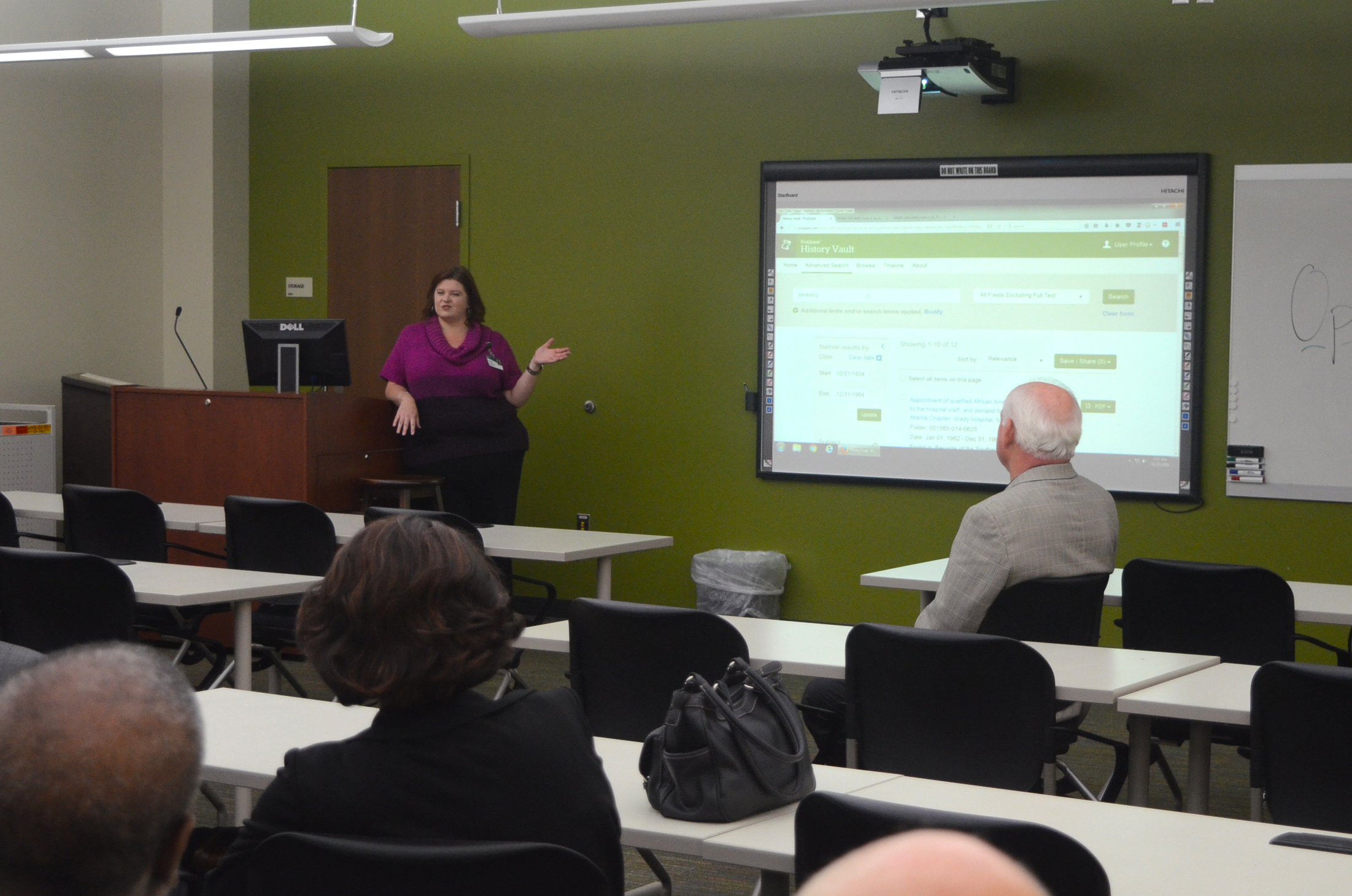
Brooke Becker introduces two new databases of records from the early days of the NAACP and the 20th century Black Freedom Struggle. Photo by Ian Keel
Two new databases of primary sources are available online
Destiny Hosmer – Staff Writer
drhosmer@uab.edu
Primary historical resources on the 20th century Black Freedom Struggle and records of the early history of the NAACP can now be accessed at UAB Libraries following the debut of two new databases on Thursday, Oct. 20.
The two new databases, entitled Black Freedom Struggle in the 20th Century and NAACP Papers, provide copies of records such as legal briefings, federal government records, personal papers and memos. The records contain documents from national, legal and branch NAACP offices throughout the country. It charts the NAACP’s work and delivers a firsthand view of crucial issues between 1909 and 1972.
The Black Freedom Struggle in the 20th Century database provides unique documentation and a variety of perspectives on the 20th century civil rights struggles between 1898 and 1996.
Brooke Becker, reference librarian for social sciences, said that these resources were added to further the mission of the university and will allow for more thorough research for both faculty and students at all levels.
“Libraries are the lifeblood of research at any university, making resources available for in-depth study and furthering knowledge while at the same time teaching students how to better find and critically analyze that information for their work, both in college and beyond,” Becker said. “These collections will not only further research in various areas but they will also serve as a conduit to voices from the past. We learn better when we can personalize the experiences and research of others. These experiences are the very definition of knowledge that will change your world.”
Assistant Professor of history Andrew Baer, Ph. D. said that the new databases will boost the credentials of the library and help students and faculty alike with their research.
“In order to recruit undergraduates, graduate students and faculty we must have access to collections of this nature and boast a top-notch library,” Baer said. “This is a step in the right direction that helps keep UAB competitive with other research universities.”
Faculty can rely on this material to write lectures and incorporate primary sources directly into class discussion, according to Baer, who plans to implement the material in his classroom next semester.
“There are endless possibilities for students to gain practical research experience using these collections,” Baer said. “There is truly an endless number of research topics that these papers could help shed light on.”
The databases were purchased from ProQuest, a global information, content and technology company that powers research in academic, corporate, government and school libraries around the world.
Although information on NAACP records and the 20th century Black Freedom Struggle was already accessible, Baer said that the ProQuest history collections provide a large volume of unpublished material and primary resources that would not usually be readily available to undergraduates at UAB.
Baer said that any student interested in a careers such as in history, law, education or government can gain practical experience by using the databases, but only if they engage the data.
“It is my hope that many professors on campus will design creative curriculum using this material and help students develop skills of research and writing vital to careers in a variety of professions,” Baer said.
To access the databases, visit mhsl.uab.edu and search for NAACP Papers or Black Freedom Struggle in the 20th Century under “databases.”
